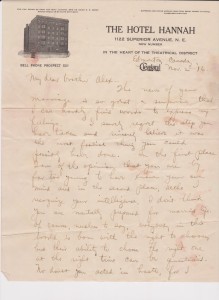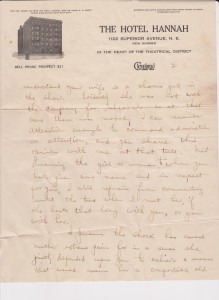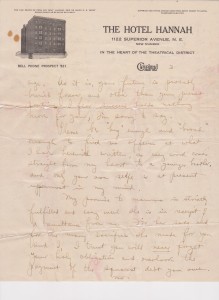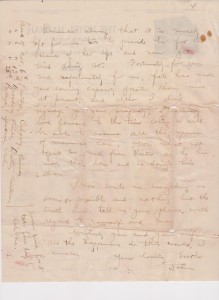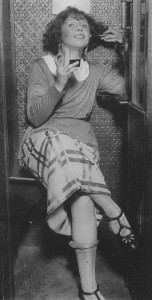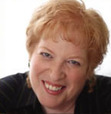Gael MacGregor's Blog
July 8, 2018
Letter From a Bygone Era
 By the time I met her, she was an old woman, but the spunk and chutzpah were still there. She spoke her mind without reservation, was ballsy and loud, and cut through all the B.S. and decorum so many of her era felt was necessary and proper.Aunt Theresa was anything but “proper”.And I liked her that way.She was the antithesis of her sister, May – my maternal grandmother – who had once been a Salvation Army officer, raising five children on her own after kicking her husband out when he became an alcoholic and wouldn’t get sober. Don’t get me wrong – I loved my grandmother without reservation, and it was she to whom I went for advice (or Mama). But Aunt Theresa always intrigued me, and I loved spending time with her. She told me stories, could get me to laugh in a heartbeat, and made me feel I could do whatever I wanted in life. She was a real “Auntie Mame” type:"Life is a banquet, and most poor sons-of-bitches are starving to death!"So I suppose it should come as no surprise that when I went through Mama’s papers after she passed, there would be remnants of Aunt Theresa as well (Mama was named after both her mother’s sisters – Theresa and Agnes – and while she liked the former name, she loathed the latter, and eventually dropped it completely).I expected that it would just be pictures, and maybe a playbill or two, but what I found was as shocking as it was funny (although the author was anything but amused when he wrote it). It was a letter from the older brother of one of the men Aunt Theresa married – don’t know whether it was #1 or #2, but the letters is dated 1916, and it was during her chorus girl heyday.What amazes me about the letter is the complete audacity of its message, and the overwhelmingly judgmental and patronizing tone displayed throughout – all the while claiming “Wishing you and your wife all the happiness in this world”.I don’t know how long Aunt Theresa stayed married to Alex, but if John’s letter to him is any indication of the rest of the family, I've no doubt that at the first meeting (and probably subsequent ones, if there were any), there were covertly hostile fireworks - all communicated in reserved, "proper" tones. When Aunt Theresa and Alex divorced, I'm sure she was more than happy to be rid of his family as well.And just think... if I were being educated in the public school system today, I wouldn’t even be able to read the letter that lends such an insight into my family history... ’cause it’s all in cursive [small rant].Enjoy!Here’s the text, and photos of the actual letter follow:Edmonton, CanadaNov. 2, ’16My dear brother Alex –The news of your marriage is so great a surprise that I can hardly find words to express my feelings. I surely regret the step you have taken and sincerely believe it was the most foolish thing you could possibly have done. In the first place I am of the opinion that you are by far too young to have known your own mind and in the second place, altho I recognize your intelligence, I don’t think you are mentally prepared for married life. Of course, needless to say, everybody in this world is born with the right to choose, but their ability to choose the right one at the right time can be questioned. No doubt you acted in haste, for I understand your wife is a chorus girl in the show. Evidently she was not with the company for rehearsals as at that time there was nobody I can remember attractive enough to command admiration or attention, and you shared this opinion with me at that time. Not knowing the girl or woman to whom you have given our name and in respect for you, I will refrain from commenting until the time when I meet her, if she lasts that long with you, or you with her.I presume the shock has caused mother extreme pain for in a sense she justly depended upon you to achieve a success that would assure her a comfortable old age. As it is, your future is probably buried forever and other than your present position I fear success holds nothing more for you, I’m sorry to say.Please be “big” enough and “broad” enough to find no offence at what I have herewith written, as every word comes straight from my heart to a younger brother, and only your own selfe is at present uppermost in my mind.My promise to mamma is strictly fulfilled and every week she is in receipt of a remittance from me. For her sake and for the many sacrifices she made for you and I, I trust you will never forget your holy obligation and overlook the payment of the squarest debt you owe.(over)Remember always that it is mostly left for us two to provide her for the balance of her life and never get tired of doing so. Fortunately for you and unfortunately for me, fate has made your earning capacity greater than mine at present, and altho I don’t “begrudge” you your prosperity, I earnestly look forward to the time when I will be able to assume all the expense of mamma’s care. We must not expect too much from Victor as he has more than done and is doing, his share.Please write me everything as soon as possible and nothing but the truth and tell me your plans, with regard to yourself and ma.Wishing you and your wife all the happiness in this world, I remain,You loving brother,JohnAnswer quick for it takes four days to reach me.J.Week of Nov. 6th – Pantages, Calgary, CanadaWeek of Nov. 13th – Broadway Theatre, Butte, MontanaWeek of Nov. 25th – Pantages, Spokane, Wash.
By the time I met her, she was an old woman, but the spunk and chutzpah were still there. She spoke her mind without reservation, was ballsy and loud, and cut through all the B.S. and decorum so many of her era felt was necessary and proper.Aunt Theresa was anything but “proper”.And I liked her that way.She was the antithesis of her sister, May – my maternal grandmother – who had once been a Salvation Army officer, raising five children on her own after kicking her husband out when he became an alcoholic and wouldn’t get sober. Don’t get me wrong – I loved my grandmother without reservation, and it was she to whom I went for advice (or Mama). But Aunt Theresa always intrigued me, and I loved spending time with her. She told me stories, could get me to laugh in a heartbeat, and made me feel I could do whatever I wanted in life. She was a real “Auntie Mame” type:"Life is a banquet, and most poor sons-of-bitches are starving to death!"So I suppose it should come as no surprise that when I went through Mama’s papers after she passed, there would be remnants of Aunt Theresa as well (Mama was named after both her mother’s sisters – Theresa and Agnes – and while she liked the former name, she loathed the latter, and eventually dropped it completely).I expected that it would just be pictures, and maybe a playbill or two, but what I found was as shocking as it was funny (although the author was anything but amused when he wrote it). It was a letter from the older brother of one of the men Aunt Theresa married – don’t know whether it was #1 or #2, but the letters is dated 1916, and it was during her chorus girl heyday.What amazes me about the letter is the complete audacity of its message, and the overwhelmingly judgmental and patronizing tone displayed throughout – all the while claiming “Wishing you and your wife all the happiness in this world”.I don’t know how long Aunt Theresa stayed married to Alex, but if John’s letter to him is any indication of the rest of the family, I've no doubt that at the first meeting (and probably subsequent ones, if there were any), there were covertly hostile fireworks - all communicated in reserved, "proper" tones. When Aunt Theresa and Alex divorced, I'm sure she was more than happy to be rid of his family as well.And just think... if I were being educated in the public school system today, I wouldn’t even be able to read the letter that lends such an insight into my family history... ’cause it’s all in cursive [small rant].Enjoy!Here’s the text, and photos of the actual letter follow:Edmonton, CanadaNov. 2, ’16My dear brother Alex –The news of your marriage is so great a surprise that I can hardly find words to express my feelings. I surely regret the step you have taken and sincerely believe it was the most foolish thing you could possibly have done. In the first place I am of the opinion that you are by far too young to have known your own mind and in the second place, altho I recognize your intelligence, I don’t think you are mentally prepared for married life. Of course, needless to say, everybody in this world is born with the right to choose, but their ability to choose the right one at the right time can be questioned. No doubt you acted in haste, for I understand your wife is a chorus girl in the show. Evidently she was not with the company for rehearsals as at that time there was nobody I can remember attractive enough to command admiration or attention, and you shared this opinion with me at that time. Not knowing the girl or woman to whom you have given our name and in respect for you, I will refrain from commenting until the time when I meet her, if she lasts that long with you, or you with her.I presume the shock has caused mother extreme pain for in a sense she justly depended upon you to achieve a success that would assure her a comfortable old age. As it is, your future is probably buried forever and other than your present position I fear success holds nothing more for you, I’m sorry to say.Please be “big” enough and “broad” enough to find no offence at what I have herewith written, as every word comes straight from my heart to a younger brother, and only your own selfe is at present uppermost in my mind.My promise to mamma is strictly fulfilled and every week she is in receipt of a remittance from me. For her sake and for the many sacrifices she made for you and I, I trust you will never forget your holy obligation and overlook the payment of the squarest debt you owe.(over)Remember always that it is mostly left for us two to provide her for the balance of her life and never get tired of doing so. Fortunately for you and unfortunately for me, fate has made your earning capacity greater than mine at present, and altho I don’t “begrudge” you your prosperity, I earnestly look forward to the time when I will be able to assume all the expense of mamma’s care. We must not expect too much from Victor as he has more than done and is doing, his share.Please write me everything as soon as possible and nothing but the truth and tell me your plans, with regard to yourself and ma.Wishing you and your wife all the happiness in this world, I remain,You loving brother,JohnAnswer quick for it takes four days to reach me.J.Week of Nov. 6th – Pantages, Calgary, CanadaWeek of Nov. 13th – Broadway Theatre, Butte, MontanaWeek of Nov. 25th – Pantages, Spokane, Wash.


 So there it is... a letter from a bygone era, to a man who married my great aunt.If only there were a record of her first meeting with John and “Mamma”. Now THAT would have been something to witness!Aunt Theresa rocked it, and I thumb my nose at John in her honor.
So there it is... a letter from a bygone era, to a man who married my great aunt.If only there were a record of her first meeting with John and “Mamma”. Now THAT would have been something to witness!Aunt Theresa rocked it, and I thumb my nose at John in her honor.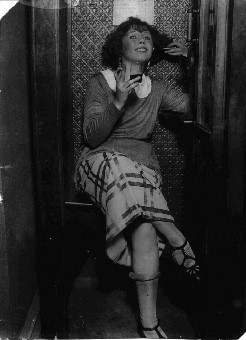 © 2015 & 2018 Gael MacGregor
© 2015 & 2018 Gael MacGregor
October 11, 2016
Making the Record: You Ain't Too Tough
 You Ain't Too Toughfor THIS Kid!This is the song that started it all.Barry came to me with this song and some investor money and said,“You’re the only one I know who has the range and attitude to sing this. Wanna make a record?”With this song we began to develop the persona for the project: strong but sensitive, confident yet vulnerable, sassy yet tender, bold and sexy.One of four songs recorded in the initial sessions, this song set the tone for the entire project and influenced the direction that subsequent songs would take.I also got to sing it on-screen in the film as the “Lead singer in convict reunion band” (don’t ask) in the filmWest From North Goes South(starring Sean Thompson [ofThe Heights],singer Morris Day, Tina Louise[Gilligan’s Island’s Ginger], Phyllis Diller, Larry Linville [Frank Burns onM*A*S*H]& LaWanda Page [Aunt Esther onSanford & Son]).============================================================CREDITS:Produced byBarry CoffingEngineered & Mixed byChris HuffordRecorded & Mixed atTempo Studios, Hollywood, CA, USAHorn Arrangement byDave StambaughGuitars—Michael LentBass—Osama AfifiB3 Organ—Greg MathiesonPiano—Mark MathiesonDrums—Gary PonderHarmonica—John MiraniHorns—Bob Clark, Clay Jenkins, Tom Whaley,Dave Stambaugh, Beverly Dahlke & Sal LozanoBackground Vocals—Gael MacGregor, Ramona Wright,Julie Chadwick, Barry Coffing & Jane Fontana============================================================
You Ain't Too Toughfor THIS Kid!This is the song that started it all.Barry came to me with this song and some investor money and said,“You’re the only one I know who has the range and attitude to sing this. Wanna make a record?”With this song we began to develop the persona for the project: strong but sensitive, confident yet vulnerable, sassy yet tender, bold and sexy.One of four songs recorded in the initial sessions, this song set the tone for the entire project and influenced the direction that subsequent songs would take.I also got to sing it on-screen in the film as the “Lead singer in convict reunion band” (don’t ask) in the filmWest From North Goes South(starring Sean Thompson [ofThe Heights],singer Morris Day, Tina Louise[Gilligan’s Island’s Ginger], Phyllis Diller, Larry Linville [Frank Burns onM*A*S*H]& LaWanda Page [Aunt Esther onSanford & Son]).============================================================CREDITS:Produced byBarry CoffingEngineered & Mixed byChris HuffordRecorded & Mixed atTempo Studios, Hollywood, CA, USAHorn Arrangement byDave StambaughGuitars—Michael LentBass—Osama AfifiB3 Organ—Greg MathiesonPiano—Mark MathiesonDrums—Gary PonderHarmonica—John MiraniHorns—Bob Clark, Clay Jenkins, Tom Whaley,Dave Stambaugh, Beverly Dahlke & Sal LozanoBackground Vocals—Gael MacGregor, Ramona Wright,Julie Chadwick, Barry Coffing & Jane Fontana============================================================
It All Started With Earl
 CHAPTER 13“The purpose of human life is to serve,and to show compassionand the will to help others.”~Dr. Albert Schweitzer~For me, it all started with Earl... the guy on the corner where I'd drive by on my way to work each day. The first day he came by my car, carrying his“God bless you”sign, I found myself doing what so many of us do... hoping he wouldn't come near me. Then I felt guilty for having the thought and rolled down my window. I motioned him over and asked his name. He looked a bit puzzled for a moment—as if it had been a long time since anyone had wanted to know—and then said,"My name is Earl, Miss."I asked him if he was hungry and he said yes. I handed him the lunch I'd made for myself and told him to take care. He smiled and said,"God bless, Miss"and I went on my way.I started thinking about Earl and wondering what brought him to his current condition... and started wondering about what makes us recoil when we can't avoid the Earls of the world. I think it's fear, but the fear that... of... what? The fear that they might be crazy and do us harm? The fear that we're just a paycheck short of being on the corner ourselves? I didn't know... I still don't… but I still believe the underlying emotion is fear, regardless of what the fear(s) might be.I started making an extra lunch each day... keeping things for Earl more to the soft side, since I could see he was missing a few teeth.Soon after, I started seeing other folks at the corner... it seemed there was a little community under the freeway and they'd take turns standing out there, and then would share whatever they got with the others.I met Rusty—kind of the dad of the group, even though he wasn't the oldest. Then there were Dottie and Randy and Miranda and a few others I met as time went by.One day, when the rain was threatening, Rusty asked for money—something he never did—and said he was planning to go over to a sporting goods store close by and get some tarps so they and their belongings could say relatively dry. I asked him how many he needed, he told me, and then I said I'd be right back. I got the tarps, brought them to Rusty and went on to work... albeit a little late. I lied (something I hate doing) to my boss—a decidedly uncompassionate sort—saying that I'd gotten stuck in an awful traffic jam—and at the time, being one of the only people in L.A. without a cell phone, couldn't call him. Oh well... he got over it, and Rusty and the crew were dry during the downpours over the next few days.They did some cleanup work for a little cash while the construction folks were doing work nearby—some of the workers got together and helped them out that way, paying Rusty and his "crew" out of their own pockets.I’ve noticed over the years that those who have little seem to do a lot for others, and it appears to be true—a former co-worker who was with the United Way said that the people who gave the highest percentage of their salary to the United Way charities were in the $20-$25,000/year bracket. Those guys helping Rusty and his little family knew what it was like to have little, and gave out of their pockets to those who had less. I’ve looked at those workers a lot differently since then.One day after work, I parked the car and walked over to the area, wanting to actually talk at length with the people of this community and find out more about them. I was introduced all around, and got to hear their stories... and quite a few different stories, they were—everyone's was different, yet none of them asked for pity. None of them cried"poor me".They were, however, flabbergasted that someone actually wanted to know, so they opened up a lot more than I'd anticipated. Earl introduced me to his girl friend, Miranda (now how many of us think of the homeless as having girlfriends?), and Darla brought out her little mutt, Sophie, whose whole rump wiggled as she wagged her tail. Sophie adored everyone, but especially Darla, who doted on her.Dottie had gone straight from her abusive home to an abusive marriage. Her husband beat her regularly, and had knocked out a couple of her front teeth. He'd just picked up where her parents had left off—making her believe she was nothing—worth nothing—and that no one would ever think she was something... and she believed him, just as she'd believed her father and mother before him. When her husband died in a drunken brawl, she was left with nothing—no home, no money, no friends, no self-worth... so she ended up on the street. She had no education—she'd dropped out of school to get married, had never been in the work force and had no life or occupational skills. She was ripe for falling through the cracks, because no one ever knew she was gone...Randy was a Viet Nam vet and said he couldn't handle the work environment after he got home... he was claustrophobic and couldn't stand being inside for any length of time. He said he found life on the street preferable to"being trapped inside four walls."It was hard for Randy to focus on anything for a prolonged period of time, but he was Dottie's champion. He said he hoped"that bastard died painfully"when speaking of her dead husband, and was like a big brother to her. I knew that as long as Randy was around, no one would ever beat Dottie again.Rusty was an affable, friendly sort, but quick-tempered when his "family" was threatened. He didn't get too specific, but he'd had some trouble in his hometown and came to L.A. to"get away".Who knows what the trouble may have been... but one thing for sure—he took his job as their protector very seriously. He was the one to organize day labor work things (such as the cleanup crew), etc., and was the one who made sure they all had something to eat each day.Darla had come to L.A. from Wisconsin to be with a salesman who had been"real friendly"to her. Yep, another "traveling salesman" story come to life. She hated the cold and her life there, and wanted"sunshine all the time".She wasn't particularly smart when she packed up and left home at 18—with no high school diploma, because she'd skipped out before her last semester of school to be with this guy. When she got here, she discovered that the guy had moved, left no forwarding address, and the phone number she'd called only two days before was disconnected. She wasn't able to get work, since she had no address or phone—and no high school diploma. She said she didn't mind being homeless, but she still dreamed of getting off the streets, getting married and having kids. She said she’d rescued Sophie from the“doggie version of my life”.Earl said his story was"nothing special... just a black man from the South..."who had come to L.A. hoping for a better life, but didn't get it. He said work was just as hard to find here as it was"back home"and eventually, things got the better of him and he"took to the drink".He said he struggled with it every day, so asked the rest to make sure that any cash they took in didn't get into his hands and tempt him to hit the nearest liquor store. He was very matter-of-fact about it, and there was no self-pity for the hard life he'd lived. Miranda, his girl friend, was from a large family. She'd been booted out at fifteen to make her own way, and ended up as a prostitute"till Earl came along".He was never one of her tricks—he told her that she was too good to be selling herself to"the likes as what's lookin' for fun"on the street. Their romantic relationship didn’t begin till over a year after they’d been friends. Earl attributed his then 10-month stint of sobriety to Miranda's influence, and Miranda considered Earl her savior—taking her"off the streets"(interesting how that term means different things for different reasons...) and giving her a sense of self-worth.At Christmastime, about nine months after first meeting Earl, I got large fanny packs for each one of them, embroidered their names on them, and then filled them with toiletries, aspirin, band aids, soap, tissues, etc. and wrapped them up with the fanciest paper & ribbons I had. I got lots of oranges, tangerines, apples, grapes and bananas—and prewashed & peeled carrots and other veggies and packets of dressing so they didn't have to worry about spoilage. I got a couple of cases of canned juices and bottled water, dog food & vitamins and flea medicine, plus new doggie dishes for Sophie (with her name on them). I baked fresh muffins and cookies, and filled up my car. I carted the first load to their little spot they called home, they all came back to the car and we trotted the rest of Santa’s bounty over there, and then we had a lovely little celebration. Dottie and Darla cried, the fellows kept shaking their heads saying they couldn’t believe it, and Earl just looked at me and asked,"Why did you do this, Miss? God bless, God bless."And you know... I didn't have an answer for him... I had to really think. I had been so busy doing that I hadn't thought about the why... and then realized it was simply because I could.I was later reminded of my thoughts when watching The Breakfast Club again… The Molly Ringwald Prom Queen character is primping Ally Sheedy’s Plain Jane character, and when Ally asks“Why are you being so nice to me?”Molly’s reply is“Because you’re letting me”.I never could get Earl to call me by name, though—even after that year's Christmas celebration."I'm just a poor black man from the South, Miss, and old habits die hard"was all he said when I pressed him about it.One day, Earl wasn't there. He wasn't there several days in a row and neither was anyone else. I was worried about what might have happened to them. A few days later, I saw Rusty and asked him what happened. He said Earl had been arrested for vagrancy, and as is the case with so many of these small homeless communities, the police had rousted them all out one night. They trickled back for a short period of time, but because the construction in the area was done, and the brush area under the freeway had been cleared, thereby making their little community visible to everyone, they moved elsewhere... an unknown elsewhere to me...I never saw Earl again—or the others who had become family to each other—and who had made such an impact on me.I changed jobs and stopped driving in that area, but a couple of years later while on the way to an appointment, saw someone I didn't recognize on the corner. All I had was a bottle of water and a banana, but rolled down my window and gave it to the fellow there. He didn't know Earl or what had become of the previous group of people who’d been there, but said if he ever ran across them, he’d tell them I’d asked for them.Nanny (my maternal grandmother) had always said to us that when someone did us a good turn, it was highly unlikely that we'd be in the position to help them in return, so it was our duty to help others when we saw them in need (she was “Paying it Forward” before it was trendy). She didn't mention how joyous it could be, or how much we learned about ourselves and others in the process... just that we should always do as much as we could to help others—after all, if not us, who?I think a lot about Earl, Rusty, Dottie, Darla, Randy and the rest and wonder whatever happened to them—individually and as a community, and realize I will probably never know.What I do know is that Earl made me look at myself differently. He made me look at my fears and prejudices we have about the homeless... and how easily and quickly we generalize and compartmentalize people we come across in our lives.That was over fifteen years ago, and I still look for their faces every time I see someone on the corner. I keep looking for“God bless you”on a sign, hoping to see Earl’s bearded face, but nothing so far. It’s become a habit to take a couple of bottles of water and some fruit with me when I drive—just in case—and when I see someone on the corner, I stop, roll my window down, and ask them if they’d like some water and fruit.The answer is always“Yes… and God bless…”And it all started with Earl…[Author's Note: There is an organization which has taken the idea of providing daily necessities and supplies to the homeless on a much larger scale. They're called The Giving Spirit.]
CHAPTER 13“The purpose of human life is to serve,and to show compassionand the will to help others.”~Dr. Albert Schweitzer~For me, it all started with Earl... the guy on the corner where I'd drive by on my way to work each day. The first day he came by my car, carrying his“God bless you”sign, I found myself doing what so many of us do... hoping he wouldn't come near me. Then I felt guilty for having the thought and rolled down my window. I motioned him over and asked his name. He looked a bit puzzled for a moment—as if it had been a long time since anyone had wanted to know—and then said,"My name is Earl, Miss."I asked him if he was hungry and he said yes. I handed him the lunch I'd made for myself and told him to take care. He smiled and said,"God bless, Miss"and I went on my way.I started thinking about Earl and wondering what brought him to his current condition... and started wondering about what makes us recoil when we can't avoid the Earls of the world. I think it's fear, but the fear that... of... what? The fear that they might be crazy and do us harm? The fear that we're just a paycheck short of being on the corner ourselves? I didn't know... I still don't… but I still believe the underlying emotion is fear, regardless of what the fear(s) might be.I started making an extra lunch each day... keeping things for Earl more to the soft side, since I could see he was missing a few teeth.Soon after, I started seeing other folks at the corner... it seemed there was a little community under the freeway and they'd take turns standing out there, and then would share whatever they got with the others.I met Rusty—kind of the dad of the group, even though he wasn't the oldest. Then there were Dottie and Randy and Miranda and a few others I met as time went by.One day, when the rain was threatening, Rusty asked for money—something he never did—and said he was planning to go over to a sporting goods store close by and get some tarps so they and their belongings could say relatively dry. I asked him how many he needed, he told me, and then I said I'd be right back. I got the tarps, brought them to Rusty and went on to work... albeit a little late. I lied (something I hate doing) to my boss—a decidedly uncompassionate sort—saying that I'd gotten stuck in an awful traffic jam—and at the time, being one of the only people in L.A. without a cell phone, couldn't call him. Oh well... he got over it, and Rusty and the crew were dry during the downpours over the next few days.They did some cleanup work for a little cash while the construction folks were doing work nearby—some of the workers got together and helped them out that way, paying Rusty and his "crew" out of their own pockets.I’ve noticed over the years that those who have little seem to do a lot for others, and it appears to be true—a former co-worker who was with the United Way said that the people who gave the highest percentage of their salary to the United Way charities were in the $20-$25,000/year bracket. Those guys helping Rusty and his little family knew what it was like to have little, and gave out of their pockets to those who had less. I’ve looked at those workers a lot differently since then.One day after work, I parked the car and walked over to the area, wanting to actually talk at length with the people of this community and find out more about them. I was introduced all around, and got to hear their stories... and quite a few different stories, they were—everyone's was different, yet none of them asked for pity. None of them cried"poor me".They were, however, flabbergasted that someone actually wanted to know, so they opened up a lot more than I'd anticipated. Earl introduced me to his girl friend, Miranda (now how many of us think of the homeless as having girlfriends?), and Darla brought out her little mutt, Sophie, whose whole rump wiggled as she wagged her tail. Sophie adored everyone, but especially Darla, who doted on her.Dottie had gone straight from her abusive home to an abusive marriage. Her husband beat her regularly, and had knocked out a couple of her front teeth. He'd just picked up where her parents had left off—making her believe she was nothing—worth nothing—and that no one would ever think she was something... and she believed him, just as she'd believed her father and mother before him. When her husband died in a drunken brawl, she was left with nothing—no home, no money, no friends, no self-worth... so she ended up on the street. She had no education—she'd dropped out of school to get married, had never been in the work force and had no life or occupational skills. She was ripe for falling through the cracks, because no one ever knew she was gone...Randy was a Viet Nam vet and said he couldn't handle the work environment after he got home... he was claustrophobic and couldn't stand being inside for any length of time. He said he found life on the street preferable to"being trapped inside four walls."It was hard for Randy to focus on anything for a prolonged period of time, but he was Dottie's champion. He said he hoped"that bastard died painfully"when speaking of her dead husband, and was like a big brother to her. I knew that as long as Randy was around, no one would ever beat Dottie again.Rusty was an affable, friendly sort, but quick-tempered when his "family" was threatened. He didn't get too specific, but he'd had some trouble in his hometown and came to L.A. to"get away".Who knows what the trouble may have been... but one thing for sure—he took his job as their protector very seriously. He was the one to organize day labor work things (such as the cleanup crew), etc., and was the one who made sure they all had something to eat each day.Darla had come to L.A. from Wisconsin to be with a salesman who had been"real friendly"to her. Yep, another "traveling salesman" story come to life. She hated the cold and her life there, and wanted"sunshine all the time".She wasn't particularly smart when she packed up and left home at 18—with no high school diploma, because she'd skipped out before her last semester of school to be with this guy. When she got here, she discovered that the guy had moved, left no forwarding address, and the phone number she'd called only two days before was disconnected. She wasn't able to get work, since she had no address or phone—and no high school diploma. She said she didn't mind being homeless, but she still dreamed of getting off the streets, getting married and having kids. She said she’d rescued Sophie from the“doggie version of my life”.Earl said his story was"nothing special... just a black man from the South..."who had come to L.A. hoping for a better life, but didn't get it. He said work was just as hard to find here as it was"back home"and eventually, things got the better of him and he"took to the drink".He said he struggled with it every day, so asked the rest to make sure that any cash they took in didn't get into his hands and tempt him to hit the nearest liquor store. He was very matter-of-fact about it, and there was no self-pity for the hard life he'd lived. Miranda, his girl friend, was from a large family. She'd been booted out at fifteen to make her own way, and ended up as a prostitute"till Earl came along".He was never one of her tricks—he told her that she was too good to be selling herself to"the likes as what's lookin' for fun"on the street. Their romantic relationship didn’t begin till over a year after they’d been friends. Earl attributed his then 10-month stint of sobriety to Miranda's influence, and Miranda considered Earl her savior—taking her"off the streets"(interesting how that term means different things for different reasons...) and giving her a sense of self-worth.At Christmastime, about nine months after first meeting Earl, I got large fanny packs for each one of them, embroidered their names on them, and then filled them with toiletries, aspirin, band aids, soap, tissues, etc. and wrapped them up with the fanciest paper & ribbons I had. I got lots of oranges, tangerines, apples, grapes and bananas—and prewashed & peeled carrots and other veggies and packets of dressing so they didn't have to worry about spoilage. I got a couple of cases of canned juices and bottled water, dog food & vitamins and flea medicine, plus new doggie dishes for Sophie (with her name on them). I baked fresh muffins and cookies, and filled up my car. I carted the first load to their little spot they called home, they all came back to the car and we trotted the rest of Santa’s bounty over there, and then we had a lovely little celebration. Dottie and Darla cried, the fellows kept shaking their heads saying they couldn’t believe it, and Earl just looked at me and asked,"Why did you do this, Miss? God bless, God bless."And you know... I didn't have an answer for him... I had to really think. I had been so busy doing that I hadn't thought about the why... and then realized it was simply because I could.I was later reminded of my thoughts when watching The Breakfast Club again… The Molly Ringwald Prom Queen character is primping Ally Sheedy’s Plain Jane character, and when Ally asks“Why are you being so nice to me?”Molly’s reply is“Because you’re letting me”.I never could get Earl to call me by name, though—even after that year's Christmas celebration."I'm just a poor black man from the South, Miss, and old habits die hard"was all he said when I pressed him about it.One day, Earl wasn't there. He wasn't there several days in a row and neither was anyone else. I was worried about what might have happened to them. A few days later, I saw Rusty and asked him what happened. He said Earl had been arrested for vagrancy, and as is the case with so many of these small homeless communities, the police had rousted them all out one night. They trickled back for a short period of time, but because the construction in the area was done, and the brush area under the freeway had been cleared, thereby making their little community visible to everyone, they moved elsewhere... an unknown elsewhere to me...I never saw Earl again—or the others who had become family to each other—and who had made such an impact on me.I changed jobs and stopped driving in that area, but a couple of years later while on the way to an appointment, saw someone I didn't recognize on the corner. All I had was a bottle of water and a banana, but rolled down my window and gave it to the fellow there. He didn't know Earl or what had become of the previous group of people who’d been there, but said if he ever ran across them, he’d tell them I’d asked for them.Nanny (my maternal grandmother) had always said to us that when someone did us a good turn, it was highly unlikely that we'd be in the position to help them in return, so it was our duty to help others when we saw them in need (she was “Paying it Forward” before it was trendy). She didn't mention how joyous it could be, or how much we learned about ourselves and others in the process... just that we should always do as much as we could to help others—after all, if not us, who?I think a lot about Earl, Rusty, Dottie, Darla, Randy and the rest and wonder whatever happened to them—individually and as a community, and realize I will probably never know.What I do know is that Earl made me look at myself differently. He made me look at my fears and prejudices we have about the homeless... and how easily and quickly we generalize and compartmentalize people we come across in our lives.That was over fifteen years ago, and I still look for their faces every time I see someone on the corner. I keep looking for“God bless you”on a sign, hoping to see Earl’s bearded face, but nothing so far. It’s become a habit to take a couple of bottles of water and some fruit with me when I drive—just in case—and when I see someone on the corner, I stop, roll my window down, and ask them if they’d like some water and fruit.The answer is always“Yes… and God bless…”And it all started with Earl…[Author's Note: There is an organization which has taken the idea of providing daily necessities and supplies to the homeless on a much larger scale. They're called The Giving Spirit.] [95% of all donations goes directly to helping the homeless. I encourage all to support their efforts—whether it's by donating money to them, working as a volunteer or doing similar work in your own neighborhoods... because there will always be another Earl.]© 2008, 2010 & 2016 • Gael MacGregor • www.gaelmacgregor.comGael MacGregor is a Los Angeles-based musician, singer/songwriter,music supervisor, author and advocate for size acceptance andstrong intellectual property rights for all content creators.
[95% of all donations goes directly to helping the homeless. I encourage all to support their efforts—whether it's by donating money to them, working as a volunteer or doing similar work in your own neighborhoods... because there will always be another Earl.]© 2008, 2010 & 2016 • Gael MacGregor • www.gaelmacgregor.comGael MacGregor is a Los Angeles-based musician, singer/songwriter,music supervisor, author and advocate for size acceptance andstrong intellectual property rights for all content creators.
October 6, 2016
Charities & Causes
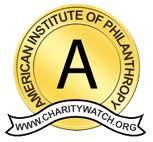 (Helping you give wisely to charity)Help for Those in NeedThe Giving Spirit
(Helping you give wisely to charity)Help for Those in NeedThe Giving Spirit The Salvation Army(ringin’ the bell since childhood—my grandparents were officers)
The Salvation Army(ringin’ the bell since childhood—my grandparents were officers)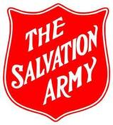 Community & EducationThe Literacy Site(Click daily. Companies/sponsors donate. Free & easy to help!)
Community & EducationThe Literacy Site(Click daily. Companies/sponsors donate. Free & easy to help!) The Torii Hunter Project
The Torii Hunter Project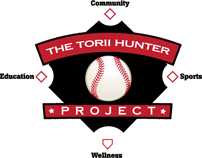 Heart of a Champion
Heart of a Champion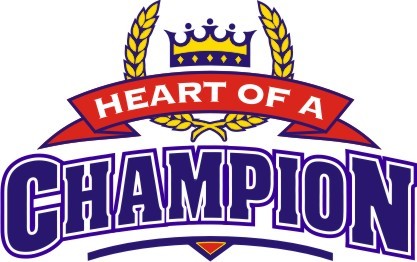 Angels Baseball Foundation
Angels Baseball Foundation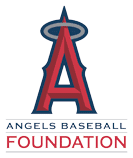 Size AcceptanceHealth at Every Size
Size AcceptanceHealth at Every Size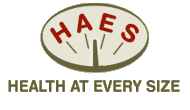 The Body Positive
The Body Positive Kelly Bliss(Plus Size Fitness & Wellness)
Kelly Bliss(Plus Size Fitness & Wellness) Plus Size Yellow Pages
Plus Size Yellow Pages Love Your Body Day(sponsored by the NOW Foundation)
Love Your Body Day(sponsored by the NOW Foundation)
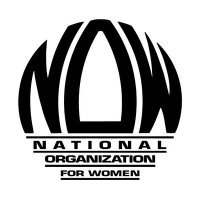 Animal Rights & RescueThe Pepper Foundation(Rescue & Foster of Senior Dogs)
Animal Rights & RescueThe Pepper Foundation(Rescue & Foster of Senior Dogs) Environment & WildlifeThe Rainforest Site(Click daily. Companies/sponsors donate. Free & easy to help!)
Environment & WildlifeThe Rainforest Site(Click daily. Companies/sponsors donate. Free & easy to help!) Greenpeace(Peaceful protest to promote environmental solutions)
Greenpeace(Peaceful protest to promote environmental solutions) World Wildlife Fund(Protecting animal species worldwide)
World Wildlife Fund(Protecting animal species worldwide) Poverty & World HungerAmple Harvest(Creating Solutions to Food Waste)
Poverty & World HungerAmple Harvest(Creating Solutions to Food Waste)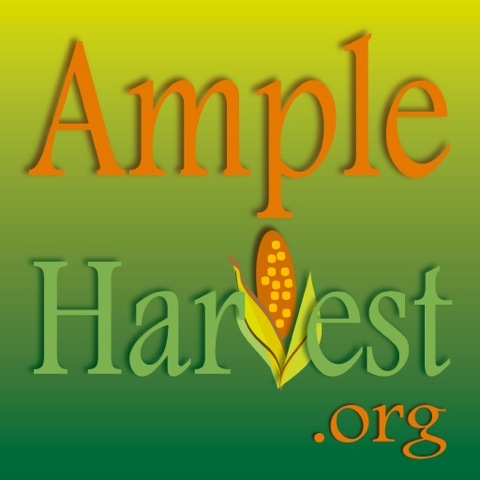 Heifer International
Heifer International The Hunger Site(Click daily. Companies/sponsors donate. Free & easy to help!)
The Hunger Site(Click daily. Companies/sponsors donate. Free & easy to help!) Feeding America
Feeding America Politics & VotingFactCheck.Org(Want to know if those campaign ads are true? Check here.)
Politics & VotingFactCheck.Org(Want to know if those campaign ads are true? Check here.)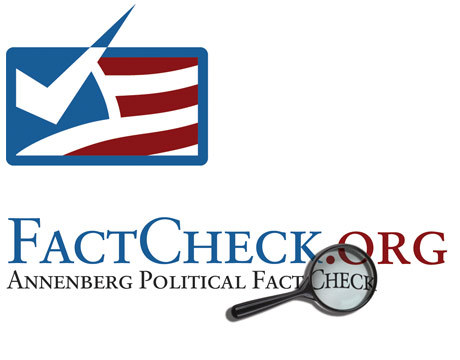 Follow the Money(Who contributes to YOUR state’s candidates?)
Follow the Money(Who contributes to YOUR state’s candidates?)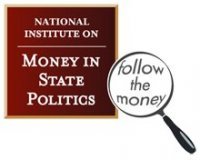 OpenSecrets.Org(Who’s giving, how much & what are they getting in return?)
OpenSecrets.Org(Who’s giving, how much & what are they getting in return?)
October 5, 2016
I'm Baaaaaack!
 Welcome back, everyone!I know it's been awhile, but after repeated hacks to my site, we pulled everything, did some security upgrades, redesigned it all, and here we are again. I'm not sure what made my site so attractive to folks wanting to sell term papers and essays, but I seemed to be their go-to gal.I will be re-posting some of the most popular items--especially those in The Biz (of Music) and The Making of the Record. There will be new ones, of course, so come back soon and maybe I'll have a new recipe or two for you.In the meantime, listen to some music, dance around, and have fun!
Welcome back, everyone!I know it's been awhile, but after repeated hacks to my site, we pulled everything, did some security upgrades, redesigned it all, and here we are again. I'm not sure what made my site so attractive to folks wanting to sell term papers and essays, but I seemed to be their go-to gal.I will be re-posting some of the most popular items--especially those in The Biz (of Music) and The Making of the Record. There will be new ones, of course, so come back soon and maybe I'll have a new recipe or two for you.In the meantime, listen to some music, dance around, and have fun!
November 21, 2015
Fat Folks and the Arts
This was another post that disappeared during a site hack… and was one of the first few I wrote. So for those who missed it…
=============================================
It’s especially glaring in the entertainment industry, where we’re bombarded with images of “beautiful” people, which, by media translation means “skinny”. (“Ain’t none o’ ya’ll look like nobody on TV,” as Whoopi Goldberg said to the audience at her one-woman show on Broadway. That, however, is another article.)
I’m talking about fat singers, actors and other entertainment folks…
My experience in the industry has shown me that:
• It’s okay to be a fat actor if you’re a guy—you can still be considered “sexy” and desirable (John Goodman was often touted as sexy in his TV heyday; Ruben Studdard, one of the American Idol winners, has had scores of women at his feet—young, old, black, white, skinny, fat)
• It’s more okay to be a fat black woman than a fat white woman on TV or in film
• It’s okay to be a fat black singer—male or female, lead or background
• It’s NOT okay to be a fat, white, LEAD singer
• If you’re a background singer, your difficulty is not being fat but being white, and the reverse prejudice of acts wanting “black backup chicks” (their words, not mine) is more of a stumbling block than your size
• It’s okay to be a fat comedian or comedienne—but don’t forget to make fat jokes—otherwise you’ll never have an act. People EXPECT fat jokes from fat folks
• For every Camryn Manheim, there are hundreds of Calista Flockharts
• If you’re fat AND over 30 it’s buh-bye unless you want to play the frumpy housewife or fat caricature role
Thank God for Mo’nique’s “Fat Chance” beauty pageant for big gals—she showed that fat girls are sexy, smart and talented—one of the 1st season’s contestants recorded a CD (nice voice, too!) and another was part of a very cute (but tastefully sexy) calendar. Surprisingly enough, it got more positive attention than naysayers—I think, probably, because they show fat girls working out, dancing, singing and most of all, just LIVING.
It really IS time to break the mold, and in the spirit of Camryn Manheim’s and Mo’nique’s fabulous and positive-image trailblazing, I have just the CD to do it. 
So here’s how we’re going to market this fat old broad… My CD is done, despite years of struggles, setbacks, money running out, a studio fire where all but three masters were burned up… but because I’d had a “feeling” I’d transferred all the stuff onto A-DAT so we were able to salvage everything; otherwise, the whole project would have been nothing but ashes… taking jobs within the industry learning all the business parts of the biz, getting some of the completed songs/recordings into film and TV (one of the songs has already been in ten films so far!), finding love and getting married for the first time at age 47, working for snakes in the industry, but finding lots of new friends and wonderful people in the process… It goes on and on…
The marketing folks have been kinda confused about the up front, unabashed way we’re looking at it. I’m fat. I’m not young. We’re not trying to hide anything, and are going to capitalize on the ready-made story behind the whole thing.
I refuse to be ashamed of who I am. No apologies. No excuses. No negativity. LIFE!
Title of the album? “You Ain’t Too Tough”
It’s all about empowerment—busting the conventions about age, size and what is sexy. This is a project for fat girls, guys and gals who like fat girls, feminists, moms who yearn to break out of the little bubble they’ve been stuck in because someone else has been deciding who they are and what defines them.
After all, we fat folks are the majority, but the way the industry treats us, you’d think we were lepers.
And as for talent… forget the false modesty… The best thing I do is sing and perform. I’m old enough to be the mother of two of the guys in one band I sing with, and guys their ages hit on me after every show we do. So much for age or size as an impediment to being accepted or sought after.
The suits and bean counters at the labels don’t GET it. Audiences always do.
But the industry doesn’t think they will, so they focus on a very narrow spectrum of entertainers, whittling out as much diversity as possible. They’re accused of racism when it’s non-white folks being excluded, but they don’t care whether they exclude fat folks, because it’s still “acceptable” to hate, denigrate, ignore and humiliate us at every turn.
Oprah only wants fat folks who are miserable being fat and will subject themselves to the Dr. Phil way of thinking about being fat… that it’s horrible and you’re a weak, awful person if you ARE fat—what’s up with that?
I’ve always been a pretty happy person, fat has never run my life—pro or con—and I’m tired of listening to people crow about their weight losses, only to gain the weight back (and then some), simply to cycle it over again for another show.
I loved when Mo’nique got into Barbara Walters’ face while visiting on “The View”—about the whole weight loss surgery (WLS) stuff—new reports are telling us what we in the Size Acceptance community have known for decades—that WLS is DANGEROUS (it killed my favorite aunt). Latest studies show that four out of every ten folks who have WLS need a second surgery due to “complications” within six MONTHS of the original surgery (and eventually, sometimes a third)—and subsequent surgeries are usually double the price of the original surgery, and quite often NOT covered by insurance. So WLS is about $30K, and the follow-up surgeries about $65K. Still no guarantee they’ll keep the weight off… and that doesn’t even include the plastic surgery after about a year or so where they have to cut, nip and tuck all the saggy skin, etc.
People are DYING to be thin… and the major culprit in the perpetuation of this whacked out body image is the media and those who control it.
It’s time to take charge and step to the front lines.
You ain’t too tough.
But I am.
© 2010 & 2013 • Gael MacGregor • • www.gaelmacgregor.com
Gael MacGregor is a Los Angeles-based musician, singer/songwriter, music supervisor, author and advocate for size acceptance and strong intellectual property rights for all content creators.
October 28, 2015
Earth, Wind and Fire: Synchronicity
This is a post that disappeared during a hack attack of my site, so here it is for the new folks that have made their way here. I’ve updated a few things, but all the salient points remain the same. 
=======================================
Weird stuff happens. Events, years apart, form odd synchronicities. With me, music is almost always involved.
A couple of years ago, a friend and musical colleague, Valerie Davis, arranged for my husband and me to attend an Earth, Wind and Fire concert in Denver, where we were visiting another major league baseball park and celebrating my hubby’s birthday. Valerie was the girlfriend (now wife) of Philip Bailey, who has been one of the central members of the band since the 1970s. Philip was exceptionally gracious and met with us after the amazing show that was a charity event for a hospital in Denver, and I never could really think of a proper way to thank them both for such a magical night.
It occurred to me that despite the many years of loving their music, I had never seen EWF in concert until that night in Colorado. During their heyday, I was singing in the U.S. and around the world (albeit on a much more modest level than EWF), and missed all sorts of concerts, sporting events, TV shows and such because I was working every night in some club, arena or other venue doing dinner theatre or singing with some cover band or as a backup singer for various artists and groups.
But everywhere I went, and throughout my professional career, EWF’s music was a huge part of my life. I just hadn’t put all the pieces together until recently, when I was listening to “The Best of Earth, Wind and Fire, Vol. 1” CD and with every song, memories kept popping up from years past…
One of my early professional recording gigs was near the end of my dinner theatre days, and was for a stereo commercial and “industrial” that used “Fantasy” as the theme. The folks at the company put together lyrics that touted their speakers and had something to do with winning a trip, promising “golden days and golden nights”, and telling all to “let your wildest dreams take flight”.
(An industrial was when a corporation/company would have an event and then hire musicians to record various songs with event-specific lyrics. Sometimes we’d also perform portions of it live at the event, but most of the stuff I did was strictly recorded, since there were usually TV and/or radio ads also attached to the project that had been extracted from the recordings.)
It was exciting to be in a real studio, and even more so, because we were singing to the great EWF music. It was just two of us singing—me and the late Danni Nanny (who had the voice of an angel and the sweet face to match, although he had a wickedly funny sense of humor). We did bunches of overdubs on all the session work we did, and that was in the days when everything was recorded onto 4-inch tape and tracks were precious commodities (24 was often the max in such situations). You’d record a few tracks that were then were “bumped down” to one track, then we would repeat the process. The late Al Walker was the arranger and producer for many of the sessions we recorded, and it was a special time for me. EWF was there for that session, and two more for other ads and industrials (or whatever they call ‘em now): one that used “Boogie Wonderland” and another which was a play on “That’s the Way of the World”.
Fast forward to me dancing around my living room to my exercise “mix” tape. (For those too young to remember life before iPods, mix tapes were compilations of the songs we liked in the order we wanted to hear them. We usually put a small tape recorder up to the speaker, recorded the songs from our various records [yep, vinyl] and voila! Such was the unsophisticated tech of the pre-CD days for the masses.)
As always, my exercises began with EWF’s version of the Beatles’ “Got to Get You Into My Life”. It is, by far, one of the best covers of any Beatles song ever done (at least in my opinion). It always got me moving and still makes me happy every time I hear it. I finger-snap about as well as I whistle (badly), but I can’t help myself when I hear the first strains of the introduction.
This day, just after my workout (which ended with “September”), I was sitting at my piano, singing and working on some new songs I was writing, when I heard a knock at the door. It was a tall, skinny fellow I’d seen a number of times visiting someone in my apartment building in Hollywood, and he completely blew me away when he said “I’ve heard you singing when I walk up the stairs and was wondering if you wanted to be in a band… Oh, and can you find me another girl for the group, too?”
It beat the heck outta auditioning. I found another gal to add to the modest four-piece band, and I ended up working with them for several years. Go figure.
Anyway, Michael Rorah was the very talented keyboard player/singer and leader of the group, the band was called Starburst (I always made fun of the name, and said we were a burst of musical fruit flavor), and we had to do every kind of music—from light jazz to pop; funk to disco; R&B to rock. One place we played at regularly was called Oscar’s, and it was a revolving restaurant atop the old Holiday Inn near Hollywood & Highland (it became the Renaissance Hotel, and has now been taken over by Loews). First set was usually light pop and jazz while folks were dining; second set picked up the pace a little; by third set it was dancing and disco (argh); fourth set was more dancing and whatever Top 40 drivel was popular; by fifth set we could do whatever we wanted, and it was usually R&B, funk and rock. “September” was one of our staples in the later sets. Michael is still happily playing music in Florida, and it was quite a treat to reconnect via social media. It also sort of ties in with the whole musical synchronicity theme here because of the following connection…
What made Oscar’s interesting (besides the fact that it revolved and moving from the dance floor/stage area to the restaurant/bar area was like coming off a slow-moving carousel) is that by the fourth and fifth sets, various musicians in town to record or perform would drop in for a drink, and often would sit in with us. Guitar players, a blues harp playing limo driver, some of Rick James’s band members, horn players of all varieties, singers in every genre—you name it, they came to Oscar’s, and since we were the sort of on-again-off-again house band, we backed up some pretty talented people, famous and non.
We caught the ears of one group when we did “September” midway through our fourth set one night. Seems that these guys were in town to record their debut album, and were itching to cut loose a little. That group was Kinsman Dazz (before they became The Dazz Band with their hit, “Let It Whip”). They sat in with us, singing and playing percussion, and I think Bobby even graced us with some very funky/jazzy sax late in the eve. They became regular visitors during their stay and were always a lot of fun. One of the guys also seemed to have a little crush on the other girl in our group—although I don’t recall anything coming of it. We’d do all sorts of tunes with them, but I remember one of the guys, Kenny, would sing Stevie Wonder songs and he sounded so remarkably like Stevie that audience members were swearing they’d heard “Stevie Wonder at Oscar’s”. It always gave us a chuckle. And who produced their first record? That would be Philip Bailey, who also had major input on the vocal arrangements for the group.
Over the years I’d hear EWF songs done by many other artists, and my mind would always go to the different times, places and groups I’d sung with, and the events that went with the memories of the songs. In the mid-1980s, I traveled to S.E. Asia on a tour with my own three-girl group, and while Lionel Richie seemed to dominate the airwaves (and bootleg cassette tapes), the duet Philip did with Phil Collins, “Easy Lover”, was everywhere. It was an ubiquitous presence around town, covered by all the house bands. “Sing a Song” was a favorite of one of the bands we played with there, and whenever we hit the clubs after our shows, the most played dance tunes were Richie’s “All Night Long” and EWF’s “Boogie Wonderland”.
Years later I was to meet my future producer, Barry Coffing, when we both had been hired by a really bad rock group. He was playing keyboards, and my writing and singing partner (Ramona Jane Hunt) and I had been hired to sing backups. They paid well, but their songs more than kinda sucked and the lead singer had a serious drinking problem (which she later conquered, thank goodness, and brava to her). From what some would call a chance meeting, came a new chapter in my professional life, and one that opened the door for another “chance” meeting.
Down the road, Barry opened a club on Melrose called 56 West. Lots of great artists performed there nightly, and a few nights a week, we’d have what we called a “Pro Players Jam”. Like Oscar’s before, it became a late-night spot for talented musicians to come sit in with the regular house band. In between serving non-alcoholic drinks, baked goods and sandwiches, we’d all go up on stage to play and sing with whoever was there. You never knew who would come in the doors and saunter onto the stage, and there were some big names and talents who loved to hang out with us.
One song we did stands out in my mind, and yet again, it is one of EWF’s: “Shining Star”. Every time I hear the song, I also can hear Larry Antonino’s funky, slapping bass licks and Barry growling out, “make your body big and strong, oh, yeah”, and remember how much fun it was to sing with Julie Chadwick the breakdown at the end: “Shining star for you to see, what your life can truly be.”
Eventually I met Valerie through Barry, because he produced both of our debut solo CDs. We performed together on a “Movie and Music Tour” in Texas, along with Herman Matthews and Deon Estus and a lot of other fine musicians. It was sort of a commercial bust, but we had fun, and there was forged another link in the synchronicity chain. Valerie and I don’t hang out much, but she took a very special place in my heart after that tour. She’s a warm, loving person who thinks about others and offers whatever is in her power to give.
So there we were in Denver, watching a band I’d spent much of my adult and professional life wanting to see “live and in person”. They were great, the cause was worthy, and while the altitude had kicked my behind, it was a wonderful evening. Philip was kind and gracious after what I’m sure was a long day and night, and the connection was brought to full circle.
So you never know how many little ties bind us together—even when one of the parties has no idea of the impact they are creating by what they do, who they are and the talents they share.
I’m just so very grateful that I’m now able to fully voice my “Thank you” in a very public way that lets two people know how much their kindness and generosity meant to me—the connection it completed, and the special place they will always have in my heart.
Music is magical, isn’t it?
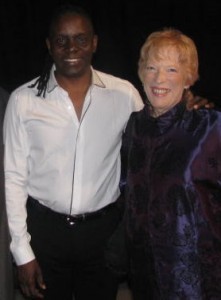 Yours truly with Philip Bailey
Yours truly with Philip Bailey© 2013 • Gael MacGregor •
Gael MacGregor is a Los Angeles-based music supervisor, musician, songwriter, author and advocate for strong intellectual property rights for all content creators.
July 27, 2015
Glossary of Music Licensing Terms
I’ve been asked (MANY times) about the terminology used in music licensing, and what it all means. I put together a glossary that I hand out when I appear on a panel, or if I’m asked to speak about music licensing, or when consulting with a songwriter or publisher client, etc., but figured I’d make it available to folks online for FREE—’cause these are things EVERY songwriter, publisher (especially self-published) and artist needs to know… and I know how tight money is these days and how expensive it can be to find out such things or get advice.
So it’s a gift, guys & gals—it’ll help you formulate the questions you might have, and save you a lot in my consulting fees (which are very reasonable, by the way). 
March 25, 2015
Letter From a Bygone Era
My Great Aunt Theresa was a wild one.
In her youth and young adulthood, she wore turned-down hose, bobbed her hair, smoked, drank whiskey, and was a chorus girl. She married and divorced several times (never did know exactly how many).
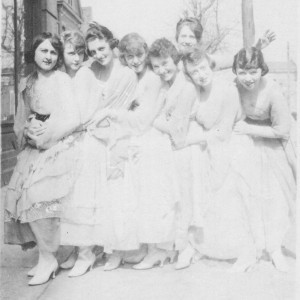 Aunt Theresa is all the way to the right.
Aunt Theresa is all the way to the right.By the time I met her, she was an old woman, but the spunk and chutzpah were still there. She spoke her mind without reservation, was ballsy and loud, and cut through all the B.S. and decorum so many of her era felt was necessary and proper.
Aunt Theresa was anything but “proper”.
And I liked her that way.
She was the antithesis of her sister, May – my maternal grandmother – who had once been a Salvation Army officer, raising five children on her own after kicking her husband out when he became an alcoholic and wouldn’t get sober.
Don’t get me wrong – I loved my grandmother without reservation, and it was she to whom I went for advice (or Mama). But Aunt Theresa always intrigued me, and I loved spending time with her. She told me stories, could get me to laugh in a heartbeat, and made me feel I could do whatever I wanted in life. She was a real “Auntie Mame” type: “Life is a banquet, and most poor suckers are starving to death!”
So I suppose it should come as no surprise that when I went through Mama’s papers after she passed, there would be remnants of Aunt Theresa as well (Mama was named after both her mother’s sisters – Theresa and Agnes – and while she liked the former name, she loathed the latter, and eventually dropped it completely).
I expected that it would just be pictures, and maybe a playbill or two, but what I found was as shocking as it was funny (although the author was anything but amused when he wrote it). It was a letter from the older brother of one of the men Aunt Theresa married – don’t know whether it was #1 or #2, but the letters is dated 1916, and it was during her chorus girl heyday.
What amazes me about the letter is the complete audacity of its message, and the overwhelmingly judgmental and patronizing tone displayed throughout – all the while claiming “Wishing you and your wife all the happiness in this world”.
I don’t know how long Aunt Theresa stayed married to Alex, but if John’s letter to him is any indication of the rest of the family, I’ve no doubt that at the first meeting (and probably subsequent ones, if there were any), there were covertly hostile fireworks – all communicated in reserved, “proper” tones. When Aunt Theresa and Alex divorced, I’m sure she was more than happy to be rid of his family as well.
And just think… if I were being educated in the public school system today, I wouldn’t even be able to read the letter that lends such an insight into my family history… ’cause it’s all in cursive [small rant].
Enjoy!
Here’s the text, and photos of the actual letter follow:
Edmonton, Canada
Nov. 2, ’16
My dear brother Alex –
The news of your marriage is so great a surprise that I can hardly find words to express my feelings. I surely regret the step you have taken and sincerely believe it was the most foolish thing you could possibly have done. In the first place I am of the opinion that you are by far too young to have known your own mind and in the second place, altho I recognize your intelligence, I don’t think you are mentally prepared for married life. Of course, needless to say, everybody in this world is born with the right to choose, but their ability to choose the right one at the right time can be questioned. No doubt you acted in haste, for I understand your wife is a chorus girl in the show. Evidently she was not with the company for rehearsals as at that time there was nobody I can remember attractive enough to command admiration or attention, and you shared this opinion with me at that time. Not knowing the girl or woman to whom you have given our name and in respect for you, I will refrain from commenting until the time when I meet her, if she lasts that long with you, or you with her.
I presume the shock has caused mother extreme pain for in a sense she justly depended upon you to achieve a success that would assure her a comfortable old age. As it is, your future is probably buried forever and other than your present position I fear success holds nothing more for you, I’m sorry to say.
Please be “big” enough and “broad” enough to find no offence at what I have herewith written, as every word comes straight from my heart to a younger brother, and only your own selfe is at present uppermost in my mind.
My promise to mamma is strictly fulfilled and every week she is in receipt of a remittance from me. For her sake and for the many sacrifices she made for you and I, I trust you will never forget your holy obligation and overlook the payment of the squarest debt you owe.
(over)
Remember always that it is mostly left for us two to provide her for the balance of her life and never get tired of doing so. Fortunately for you and unfortunately for me, fate has made your earning capacity greater than mine at present, and altho I don’t “begrudge” you your prosperity, I earnestly look forward to the time when I will be able to assume all the expense of mamma’s care. We must not expect too much from Victor as he has more than done and is doing, his share.
Please write me everything as soon as possible and nothing but the truth and tell me your plans, with regard to yourself and ma.
Wishing you and your wife all the happiness in this world, I remain,
You loving brother,
John
Answer quick for it takes four days to reach me.
J.
Week of Nov. 6th – Pantages, Calgary, Canada
Week of Nov. 13th – Broadway Theatre, Butte, Montana
Week of Nov. 25th – Pantages, Spokane, Wash.
So there it is… a letter from a bygone era, to a man who married my great aunt.
If only there were a record of her first meeting with John and “Mamma”. Now THAT would be something to witness!
Aunt Theresa rocked it, and I thumb my nose at John in her honor.
© 2015 Gael MacGregor
March 14, 2014
Why I Love Baseball
While usually the location for father/son bonding, the baseball stadium was where I got to know my dad. Sis, the oldest, wasn’t a sports kinda girl, and I was—loved all sorts of sports—playing and watching them. When I went to a game with Dad (or with Mum & Dad) there was lots of time to talk, and for stories about the game and about life in general. There was a warm sense that all was right with the world and that somehow Dad’s illness (that took him at the young age of 46) was a mere illusion. He looked so healthy on those spring and summer days and eves at the ballpark, and time almost stood still there.
Dad taught me a lot about the strategies of the game, and he could quote more stats than most people forget. I learned about patience, how to focus on minute details and how to watch a runner at first to spot when he was about to attempt a steal. Dad would point out why the pitcher was throwing low and inside to a particular hitter, and why all base runners would be off and running when there were two outs and the count to the batter was 3 balls and 2 strikes.
I felt I could ask Dad anything during those games, and those were the most carefree times I ever had with him. That feeling extended to an extent when listening to games on the radio and watching them on TV with him as well—even though the latter were not as prevalent on the tube as they are today. Something about the game—especially when witnessed in person at the ballpark—opened up lines of communication and broke down barriers that otherwise were firmly held in place by his Italian sensibilities.
During my high school years, a classmate’s dad was actually the general manager of my beloved Angels and he would sometimes let her invite some of her friends to the games. She didn’t know me much at all except from the orchestra in which we both played, but I somehow managed to get myself included in an invitation or two and it was quite a treat to be near the field instead of up in the nosebleed sections where we usually sat. I remember going back home to report to Dad about those trips, since he was in the last stages of his life then, and his trips to stadiums and such were “few and far between” as the old saying goes.
I’ve never been one to leave a game early. It’s just rude, not to mention foolish. The game lasts nine innings (okay, so sometimes more), and would you get up and leave before the end of a concert or a play just to miss a little traffic? Dad said that he witnessed his only triple play in person because his buddies left a game early and he stayed to watch, even though his Giants were behind and there was little chance of them winning. His pals missed a rare occurrence, Dad didn’t. I’ve left only two games before they ended—one because I’d taken the bus from L.A. to Anaheim, the game was in the 18th inning, and had I not left, I would have missed the last bus of the day to get back home and would never have made it to work the next day. The other one was at Dodger Stadium during a pre-season game in early April of one year. My friend Rosie, Mum and I went on an unseasonably cold day when temperatures dipped to the high 30s/low 40s and wind was whipping around us as if we were off Lake Michigan instead of in Chavez Ravine. While we’d worn coats and thought we’d bundled up enough, we California gals were no match for balmy Chicago weather and couldn’t make it through to the end of the game, skedaddling in the 8th, much to our mutual chagrin.
Luckily, we didn’t miss any triple plays or monumental comebacks. It’s significant, though, that I recall the exact circumstances necessitating my only two early departures. I never could understand folks who routinely leave games before they’ve ended—especially when the game is close or tied. I always think of those red brake lights from cars leaving the parking lot at Dodger Stadium as Kirk Gibson belted out his home run in the first game of the 1988 World Series. Vin Scully commented on it and I wondered… What do you say to your kids when they ask you about the only World Series game you ever attended? “Uhm… Daddy ALMOST got to see that famous home run, but was trying to get out of the stadium before the traffic rush at game’s end and missed it.”
My dad was at probably one of the most famous baseball events ever—when Lou Gehrig gave his “Luckiest man in the world” farewell speech. Dad was a NY Giants fan, but above all else, he was a baseball fan and appreciated the greats of the game, regardless of the team(s) on which they played. He was a fan of Roberto Clemente’s, too, for some of the same reasons he admired Gehrig.
Dad said being at Yankee Stadium on July 4th of 1939 was one of the highlights of his life. He remembered that there was a profound silence as Gehrig came to the field to speak, with barely a cough or paper rustling to be heard—just the crackling of the microphone and the echo from Gehrig’s voice breaking the silence. All eyes and ears were focused on the Iron Man and everyone was trying to take in the magnitude of his words. Dad said that there truly wasn’t “a dry eye in the house.” An era was ending. Gehrig was one of those heroic figures in sports who actually lived up to his iconic status. Unlike the bombastic, womanizing, boozing Babe Ruth, Lou Gehrig was humble, self-effacing and an all-around “good guy” ambassador. He was evidently just as gracious and humble off the field, working in the community until his health had deteriorated beyond his ability to participate.
I guess that’s part of why I’ve always loved Nolan Ryan so much. He reminded me a lot of what I envisioned the great Lou Gehrig to be—obviously not in his play, since Ryan was a pitcher, and Gehrig primarily a first baseman—but in the image he presented to the fans. A gentleman to the core, with an unaffected, sincere “aw, shucks, ma’am” honest humility.
After Dad’s death, my baseball bonding with Mum really expanded. She always loved to go to the games, but finances being what they were, and with her having to work the swing and late shifts a lot because Dad couldn’t work much any more, it wasn’t until after his death that she was able to seek her personal solace at the Church of Baseball. It was also when my friendship with my high school and college pal, Rosie, really flourished as well. We were the Three Musketeers at Angel Stadium, even though Rosie’s first love was for her boys in blue, the Dodgers. In the 1980s, both Mum and Rosie had made their way to the L.A. area (living in the same building where I’d been since the mid-late ’70s). Due to lack of car transport and the erratic and inconvenient bus schedules from L.A. to Anaheim and Fullerton, and suffering from baseball withdrawal, I’d started spending time at Dodger Stadium, watching the renowned Garvey-Lopes-Russel-Cey infield and Dusty Baker’s behind from the outfield bleachers (nice view). With Mum and Rosie in tow, we were again Three Musketeering it, only this time rooting Rosie’s boys on to victory. Mum and I sat behind three Hispanic nuns on Fernando Valenzuela’s historic first outing as a Dodger, and that was a real hoot. The sisters were whoopin’ and hollerin’ as if he was their own nephew, and who knew you could bond with nuns over baseball? I still have my #7 “F. Lee Boomer” jersey (an homage to Steve Yeager) and my “Wally World” shirt from when Wally Joyner played with the Angles—proof that one can root for more than one team with equal fervor. Of course, it was much easier before inter-league play, and choices sometimes must be made. 
Don’t get me started on today’s Dodgers and the glorification of Manny and other cheaters in the game, or the ludicrous and embarrassing gaffe in renaming the Anaheim Angels (the new name translates to The The Angels Angels of Anaheim—how could a Latino owner miss or ignore the redundancy of the name in translation?). The Angels are still the butt of jokes about the name change, and it certainly hasn’t resulted in increased market standing or respect for the club. Instead, it has intensified an unsettling and mean-spirited rivalry between the fans of the two teams and created an enemy atmosphere instead of camaraderie between American and National League fans in the two counties. The year before the name change, there were Angels billboards all over the Los Angeles area (even near Dodger Stadium), prompting questions from Angel fans to the owner and the Angels’ organization asking if a name change was being considered. Of course we were all lied to—they said “No, of course not,” and then the next year, The Los Angeles Angels of Anaheim moniker was hung onto the team. Billboards around Dodger Stadium now feature Dodger players and a firm, “This is MY town” declaration. War has been declared [lol]!
After all, when the Dodgers moved to L.A. they weren’t dubbed the Brooklyn Dodgers of Los Angeles. The Giants aren’t the New York Giants of San Francisco. Regardless of where your team may have begun, you are where you are. Baseball fans are much more sensitive about such things than are football fans (Go Steelers!). I’m not sure exactly why—maybe it’s because it’s a 16-game season for football (soon to be 18 if certain folks get their way) and 162 games for baseball (not counting pre- and post-season games), and fans have more time to discuss such things in-between innings…
Suffice to say that the only World Series Championship trophy the team won was as the Anaheim Angels—something Anaheim residents won’t let the organization forget. 
But I digress…
I remember watching with Mum many games that were “almost” no-hitters for Ryan, but when I witnessed a REAL one at Angel Stadium in late September of 1974, it was astounding. I finally had a sense of what Dad spoke of—the silence in the stadium—not in connection to a sad event, but because we were witnessing greatness in action. I recall the gasps when a ball was almost hit, the sighs of relief when a batter struck out or popped up, the groans when someone walked (Nolan gave up eight of ‘em that game), the roars at each of Nolan’s 15 strikeouts, the “oohs” when the great Harmon Killebrew came up in the 9th to pinch hit, and the “aahs” when Nolan walked him, and then the thunderous applause and screams when Eric Soderholm struck out to end the game. I couldn’t help but thinking, “Dad would have loved to have seen this one.”
Funny thing, too… I witnessed a milestone from another player who took part in that historic no-hitter (albeit he was playing for the other team [Minnesota Twins] at the time)—Rod Carew. Mum and I were in left field on that early August game in 1985 at Angel Stadium when Rodney got his 3,000 hit. A stark contrast to the “hush, hush don’t talk about it” atmosphere when a no-hitter is in progress, the fans went wild every time Rodney came to bat or onto the field, and were rewarded with witnessing another great becoming a part of the elite 3,000 hit club.
I’ve never been a fan of “The Wave” at baseball stadiums. I’ve always considered it a refuge for those without the attention span to follow the game and its intricacies (I dislike the whole beach ball tossing in the stands as well—for some of the same reasons, but also from a safety standpoint since I witnessed a woman getting slugged in the jaw when a guy tried to hit one of the balls making its rounds and this “boy like beer” fan hit her instead—not a pretty sight).
I got a different perspective on The Wave, however, when attending a game with my husband and another couple (neither of whom knew much about baseball, yet had a great time as we explained the game as it progressed)… When my hubby and I were shaking our heads as The Wave was progressing through the stands (while the opposing team was at bat, no less), one of our friends stated simply, “I kinda like it—all these people in one place in total agreement with one another.”
And that’s why I love baseball.
It brings together people you’d never suspect would or could agree on anything and can stop time in its tracks. It can create bonds between people who otherwise can’t always find common ground with one another or understand what makes them tick. It can make you forget all the troubles in your life—at least for a few hours—and can actually make you look at life differently than you had before.
Somehow, nothing else matters when you hear the crack of the bat and watch the ball sail into the bleachers, or when the right fielder catches a fly ball on the warning track and practically throws a strike to home plate to get the runner out, or when the sound of a 101 MPH fast ball hits the catcher’s mitt or you hear nothing but your own breathing as you cross your fingers and hope that the home team pitcher makes it through the top of the 9th inning and gets that rare no-hitter.
Baseball truly is the perfect game, and while the oft-used “baseball as life” metaphor may seem hackneyed and worn to some, it rings loud and clear and true to me.
I think it always will.
© 2010 & 2014 Gael MacGregor


